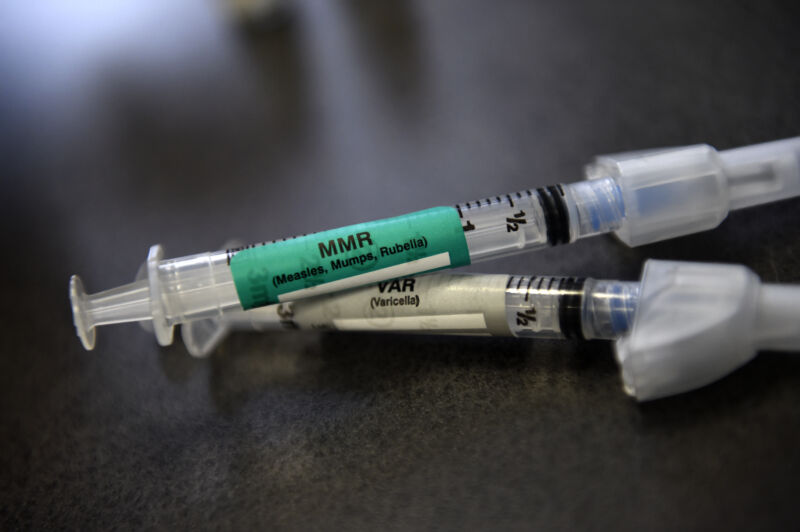
For years, the US Centers for Disease Control and Prevention has bluntly stated the truth: “Vaccines do not cause autism,” the agency affirms on its website. Yet, nearly a quarter of Americans still don’t believe it.
In an April 2024 survey by the Annenberg Public Policy Center (APPC) of the University of Pennsylvania, 24 percent of US adults denied or disputed that the CDC ever said that. Specifically, the survey asked them to assess the accuracy of the statement that the CDC has said there is no evidence linking vaccines to autism. Six percent called the statement “very inaccurate,” and 18 percent said it was “somewhat inaccurate.” An additional 3 percent responded that they were “not sure.” Of the remaining 73 percent, only 41 percent considered it “very accurate,” and 32 percent said it was “somewhat accurate.”
The results are largely unchanged from responses in 2018 when survey respondents were asked the same question. In that year, 26 percent of adults reported that the statement was “very inaccurate” or “somewhat inaccurate.”
In all, it’s a bleak finding that bodes poorly for the collective health of Americans, who are now seeing rises in cases of measles and other vaccine-preventable illnesses. Additional surveys by the APPC in 2021, 2022, and 2023 identified a slight increase in the number of survey takers who specifically believe, falsely, that the MMR (measles, mumps, and rubella) vaccine causes autism. In 2021, 9 percent of respondents falsely indicated that MMR vaccine causes autism, responding that the statement was “definitely true” (2 percent) or “probably true” (7 percent). In 2023, 12 percent of respondents fell into those categories, 2 percent for “definitely true” and 10 percent for “probably true.”
The APPC tied the false beliefs to the retracted 1998 Lancet paper by notorious anti-vaccine advocate Andrew Wakefield. Since then, the COVID-19 pandemic has only stoked vaccine misinformation and more anti-vaccine rhetoric.
“The persistent false belief that the MMR vaccine causes autism continues to be problematic, especially in light of the recent increase in measles cases,” Kathleen Hall Jamieson, director of the APPC, said in a statement. “Our studies on vaccination consistently show that the belief that the MMR vaccine causes autism is associated not simply with reluctance to take the measles vaccine but with vaccine hesitancy in general.”
Since the start of 2024, the US has seen a steady march of measles infections nationwide. As of May 31, the CDC has recorded 146 cases across 21 states. Of those cases, 64 were part of a large outbreak in Chicago, which was declared over on May 30.
Among the national cases, 45 percent were in children under the age of 5. Fifty-five percent of all cases required hospitalization, including 65 percent of the cases in children under the age of 5. The highly infectious virus mostly struck the unvaccinated—85 percent were unvaccinated or had no documented status, while 12 percent had only received one of two recommended doses.
The 146 cases in the first five months of this year have easily surpassed the 58 cases in all of 2023 and the 121 cases in 2022. CDC experts have cautioned that the US is at risk of losing its measles elimination status, attained in 2000 after a decades-long fight against the airborne virus. The US will lose its status if the virus circulates continuously over a 12-month period. In 2019, the US was close to losing its status amid two prolonged outbreaks in New York, which helped the year’s case count hit 1,274. Now, in the wake of the pandemic, measles is having a global resurgence, and vaccinations in the US have fallen below target rates that would protect against continued spread.
https://arstechnica.com/?p=2029345

